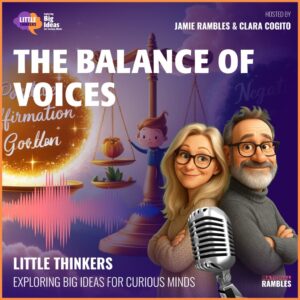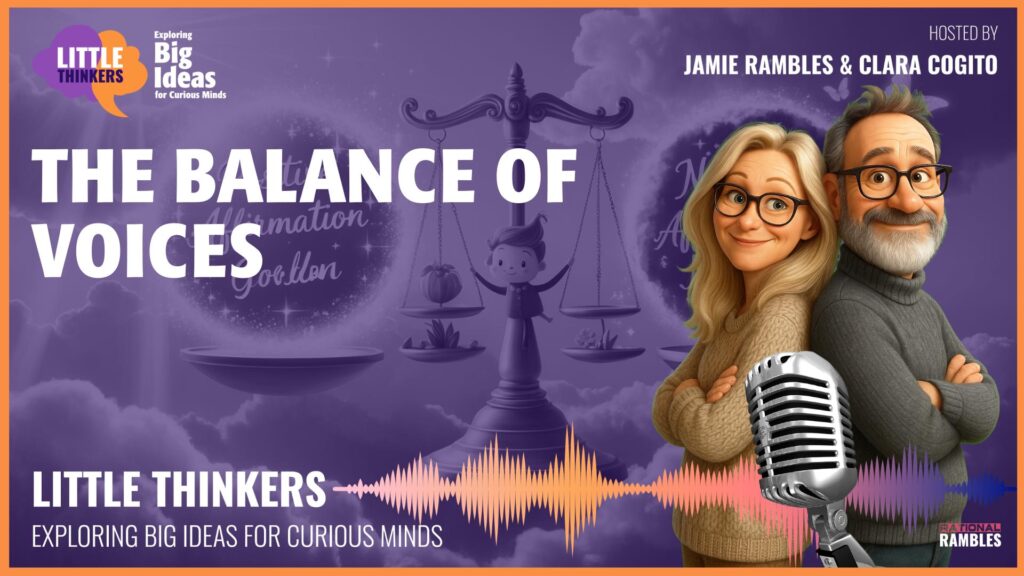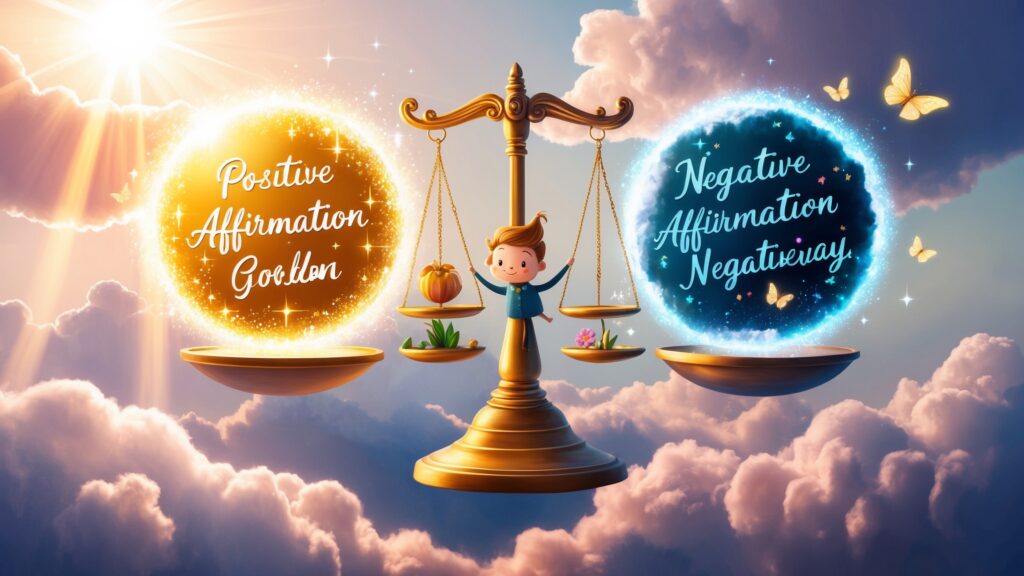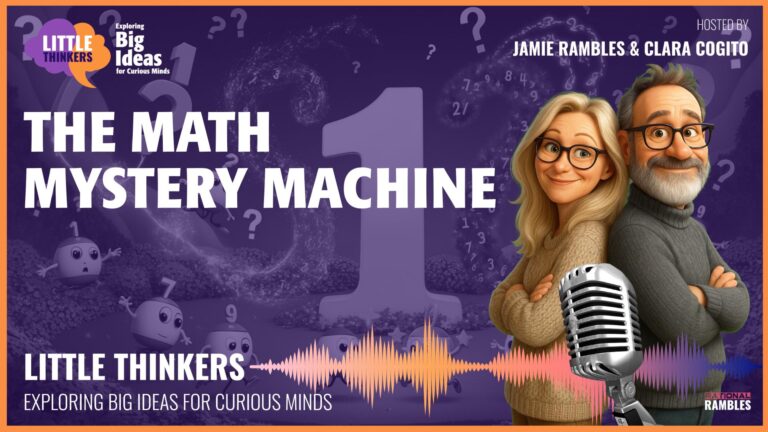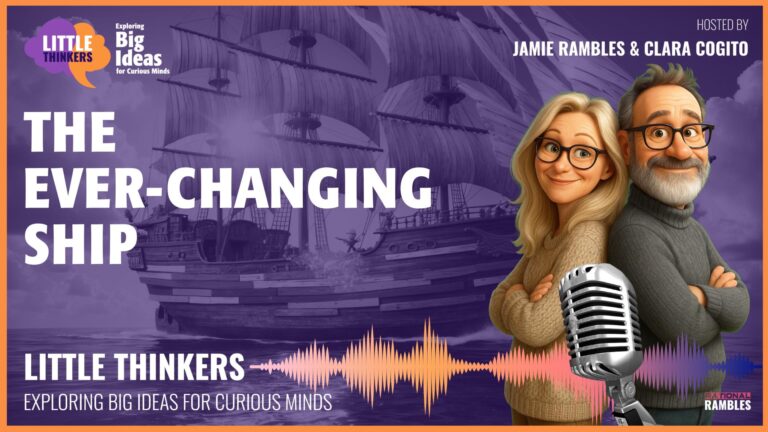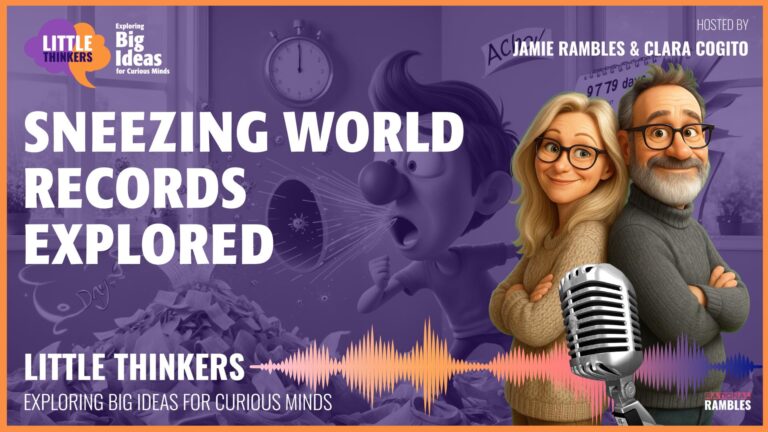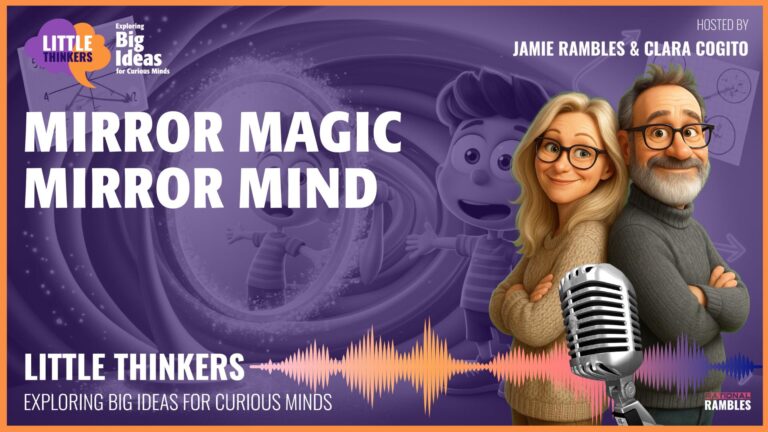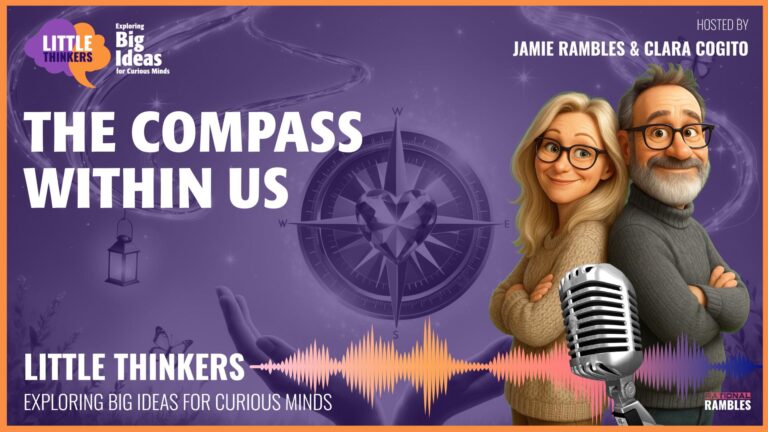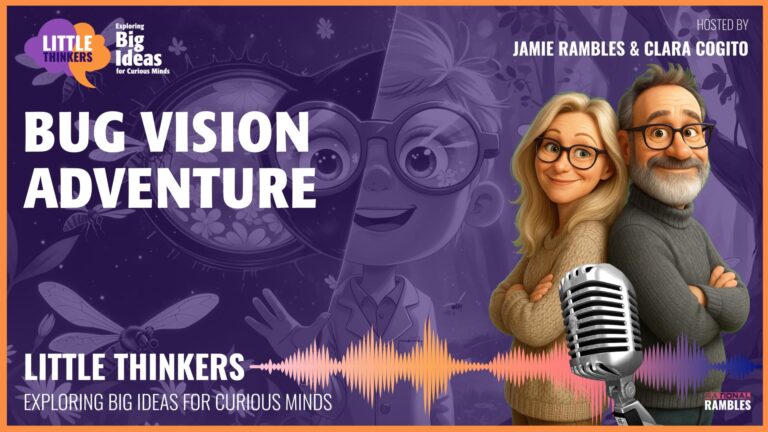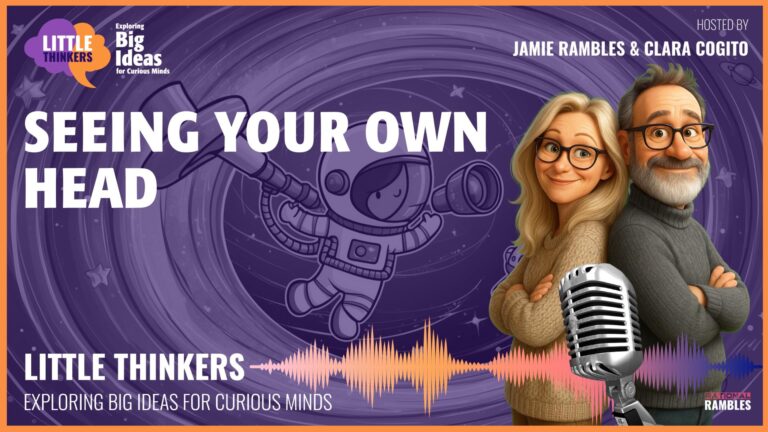The Amazing Voice-Balance in Your Mind!
The Secret Scale Inside Your Head
Have you ever noticed that little voice in your head that talks to you all day long? Sometimes it says super nice things like “Great job!” or “You can do it!” Other times, it might say not-so-nice things like “That was a silly mistake” or “I’ll never be good at this.” It’s like having your very own invisible scale inside your mind!
Imagine a balance scale – you know, those see-saw things with plates on each side that go up and down? On one side of your scale are all the encouraging words you tell yourself. On the other side are all the discouraging words. This special scale is called your Voice-Balance!
How Your Voice-Balance Works
Think about when you’re learning to ride a bike. Your discouraging voice might say, “I keep falling! I’ll never learn how to do this!” CLUNK! That puts a heavy weight on one side of your scale.
But then your encouraging voice might say, “Everyone falls when they’re learning. I’m getting better each time I try!” WHOOSH! That adds weight to the other side of your scale, helping it balance out.
Your Brain’s Tricky Habit
Here’s something AMAZING about your brain: it has a funny habit of paying more attention to negative things than positive things. Scientists call this the “negativity bias” (that means your brain notices bad stuff more easily than good stuff).
It’s like your brain is wearing grumpy glasses that make the bad stuff look BIGGER than it really is! But why would our brains do that?
Your Brain’s Super-Alert Alarm System
Long, long ago, when people lived in caves, noticing dangerous things quickly – like hungry tigers or poisonous berries – helped keep them safe. It was like having a super-alert alarm system in their brains!
This alarm system was super helpful for cave people, but nowadays, it can get WAY too noisy about little things that aren’t actually dangerous – like making a spelling mistake or spilling your juice at breakfast.
Brain Fact Treasure!
Did you know your brain is like super-flexible play-dough? It can change and grow! That means you can actually TRAIN your brain to put more weight on the encouraging side of your Voice-Balance. How cool is that?
When Your Discouraging Voice Gets Too Loud
Imagine you’re trying to draw a really tricky dinosaur, and it doesn’t look right. Your discouraging voice might say, “That’s a terrible drawing! You’re not good at art.”
At first, you might want to crumple up your paper and throw it away. But what if you took a deep dragon breath—WHOOSH—and said to yourself, “Drawing is hard sometimes, but I’m getting better with practice. This dinosaur is just helping me learn!”
That’s exactly how you add weight to the encouraging side of your Voice-Balance!
Let’s Try a Voice-Balance Experiment!
Think about something you found difficult recently. Maybe it was learning to tie your shoes, reading a tricky word, or doing a cartwheel.
What might your discouraging voice say? Maybe something like, “Everyone else can do this! You’ll never learn how!” BOOM—that’s a heavy rock on the discouraging side!
Now, let’s be voice-balance detectives. What could you put on the encouraging side to help balance things out?
- “My fingers/body/brain are learning something new!”
- “Every time I practice, I get a little better.”
- “Even grown-ups had to learn this once!”
WOW! Did you feel your Voice-Balance whoosh back toward the middle? Those were SUPER encouraging words!
Growing Brain Connections
When we practice saying kind things to ourselves, our brains actually grow new connections—like little pathways that make it easier to find encouraging thoughts next time!
It’s like watering the seeds of kindness in our minds until they grow into big, strong trees!
Real-Life Voice-Balance Stories
Imagine a kid named Max who was playing soccer with friends. He missed kicking the ball THREE times in a row! His discouraging voice started chattering like a grumpy squirrel, saying “You’re the worst soccer player ever! Everyone’s laughing at you!”
But Max balanced his scale by thinking, “Soccer takes practice. My body is learning! Everyone misses sometimes – even the world’s best players! I’m having fun with my friends, and that’s what matters most.” And guess what? He scored a goal just five minutes later!
Be Your Own Best Friend
Here’s a super important question: Would you ever tell a friend they’re terrible at something they’re learning? Of course not!
If your friend was learning to ride a bike and fell off, you wouldn’t say “You’re the worst bike rider ever!” You’d say something like, “You’re getting better! Let’s try again! Do you want a bandaid for your knee?”
The big sparkly idea is: we can talk to ourselves just like we’d talk to a good friend! Kind, helpful, and encouraging!
Brain Power Fact!
Scientists have discovered that when people practice positive self-talk—that means saying nice things to themselves—they actually solve problems better and feel happier! Their brains work better!
Your Encouragement Treasure Chest
Let’s fill a treasure chest with encouraging things you could say to yourself! Here are some golden treasures to put in your chest:
- “I’m learning and growing every day, just like a plant reaching toward the sun!”
- “Mistakes are just how I figure things out. They help me get smarter!”
- “I can take a deep breath and try again. My brain gets stronger every time I practice!”
- “I’m the only ME in the whole wide world, and I have special things to share!”
- “I can be brave, even when things feel scary.”
Can you think of your own encouraging thought to add to this treasure chest?
The Sound of Your Voices
Have you ever noticed that your discouraging voice and your encouraging voice might sound different in your mind?
Some kids say their discouraging voice sounds growly and mean – like a grumpy old troll! But their encouraging voice sounds more like sunshine—warm and bright!
What does your discouraging voice sound like? What about your encouraging voice?
Turn Your Discouraging Voice into a Silly Character!
Here’s a super fun idea! What if you imagine your discouraging voice as a tiny, funny character? Maybe it’s:
- A little thunder cloud with angry eyebrows
- A tiny porcupine with too many spiky quills getting in its own way
- A frazzled octopus juggling too many worries with all eight arms
When you picture your discouraging voice as a silly character, it’s not so scary anymore! You could even draw a picture of your worry character as a reminder that you don’t have to believe everything it says!
Everyone Has a Voice-Balance
Did you know that even grown-ups are still learning to balance their voices? It’s true! The secret is: the more you practice putting encouraging thoughts on your scale, the easier it gets as you grow up. It’s like training a muscle!
In fact, all around the world, in every country and culture, people have their own version of a Voice-Balance. No matter what language you speak or where you live, being kind to yourself in your mind helps you feel better and do better!
Your Voice-Balance Challenge
Here’s your thought homework: this week, try to catch your discouraging voice when it shows up. When you hear it saying something not-so-nice, imagine putting a feather-light encouraging thought on the other side of your Voice-Balance!
Remember, your Voice-Balance is something you’ll carry with you your whole life. The more you practice adding kind, encouraging thoughts, the happier and braver you’ll feel, even when things get tough!
Your Thoughts Light Up Your World
Your Voice-Balance is something amazing that you can work on every single day. The encouraging words you tell yourself are like stars – they light up your inner world in special ways only you can create!
What will you say to yourself today to make your Voice-Balance shine brighter?
